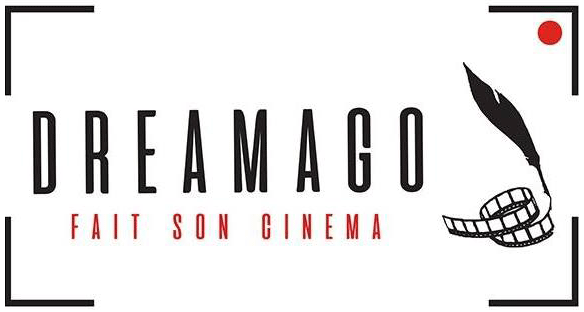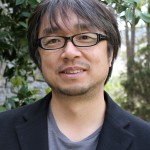A chat with Kundo Koyama – May 2012
Radio host, author, business man, journalist, humanitarian, television writer, restaurant owner, teacher, and if that wasn’t enough already, award winning screenwriter, Kundo Koyama is the epitome of a busy man.
For someone so much in movement, his screenplay, for the Japanese film, “Departures” (original title: Okuribito), allows time to slow down. The story unfolds delicately, layer by layer, to reveal a tender portrait of a man, whose loss of honor, as result of his professional problems, sets him on a path of self discovery that not only enables him to find his true purpose in life, but to reconcile himself with his past.
Departures, which won the Oscar for Best Foreign Film Oscar in 2009, tells the tale of an out of work cellist, Daigo (played by Masahiro Motoki), who returns to his home town and is forced, for monetary reasons, to take the first job he is offered, that of “encoffinment”. This funerary custom is a traditional ceremonial preparation of the deceased that has lost favor in modern day Japan where death has become a taboo subject and the handling of the dead is considered impure.
The movie gives honor back to this profession which provides important spiritual healing for the families in the mourning process. In fact, this movie has encouraged a return of the Japanese people to this traditional ceremony which has increased in popularity since the release of this film.
In talking to Koyama about his work and career, one reoccurring theme becomes clear right away. Koyama’s main goal with his work is to make people feel happy. Whatever he undertakes, whether it is a screenplay, his work in the radio and TV, or the restaurant business, no matter what job he has, if he can make people happy then he feels the job is worthwhile.
The desire to make people happy is clear throughout “Departures”. First, we see this with the journey of the main character, who realizes that even with this “degrading” profession he is actually helping people cope with their sadness and loss by seeing death in a new, natural and less scary light. He gives humanity back to the dead.
Secondly, we see this in the tone of the movie where Koyama goes from touching and sad moments to humorous ones, to lighten the mood for those who think death is heavy and sad. For Koyama, if one really thinks about death and the events surrounding death, there are often funny moments and laughter is normal so going from sadness to humor was an easy transition.
Koyama gets his motivation to make films from life itself. All of his experiences give him much material upon which to draw for inspiration. As a radio program host he encounters guests from all walks of life and these encounters also contribute to making his writing rich.
For “Departures”, he based the idea of the screenplay on his book “Film”, readjusting it for the profession of encoffinment. It was this profession that inspired the rest of the story. He included cello playing in the story because he thought it would be a beautiful instrument to use in the film.
When Koyama writes a story he chooses one album, or piece of music, then listens to it all the time. For this movie, he chose an album of Yo-Yo Ma (the world famous cellist) which in turn inspired his cellist character. His discipline can also be found in his writing schedule. He starts writing every morning at six o’clock and doesn’t stop until he changes gears at ten o’clock, to attend to all of his business affairs.
Success seems to come to all aspects of Koyama’s career. “Departures” was his first feature screenplay to be produced and it won the Oscar for Best Foreign film. How easy was it for him to write the second screenplay after such an early success? At the time of the Oscars he was already working on another screenplay and when “Departures” won he thought, “Oh my God, I have to write something that will be successful”. But very quickly he realized that what was important was the enjoyment of writing itself and focusing on that enjoyment allowed him to ease up on the pressure of success.
Koyama also extends his philosophy of making people happy in his humanitarian work. In the aftermath of the earthquake, he started Kizuna 311, a website (http://www.kizuna311.com) to bring together those who suffered from the quake and those who watched helplessly and whose thoughts went out to the suffering victims. He is now developing a calendar with phrases of comfort and optimism that helped the victims at the time of the earthquake and can continue to help others. Buying a calendar is really buying two calendars, one goes to the original buyer and another goes to a survivor of the earthquake or an institution that helps survivors. The buyer of the calendar is automatically linked to an earthquake survivor and not only is a connection created between the two but both parties benefit from the positive messages of strength and optimism.
Connection between people is what Kundo Koyama prizes and also what convinced him to travel to Switzerland for DreamAgo’s Plume & Pellicule 2012. Not only was he able to present his film to the Swiss audience of Sierre, and answer their questions, but he also was amazed to encounter screenwriters from all over the world who were taking part in the screenwriting lab of Plume & Pellicule.
Finally, when asked what his strongest motivation was behind the writing of “Departures”, he simply answered that he wrote it for the daughter he left behind. He does not know if she has seen it but this film is Koyama’s way of reaching out and connecting to her through his story of healing, of love and of forgiveness. By creating this story he hopes that she might one day see the film and know he was making it for her.
By finding the beauty in what has been considered ugly, namely death, and by connecting people both on a personal level, a global level and a fictitious level in his characters, Kundo Koyama constantly strives and achieves what he desires most of all, to make people happy.


